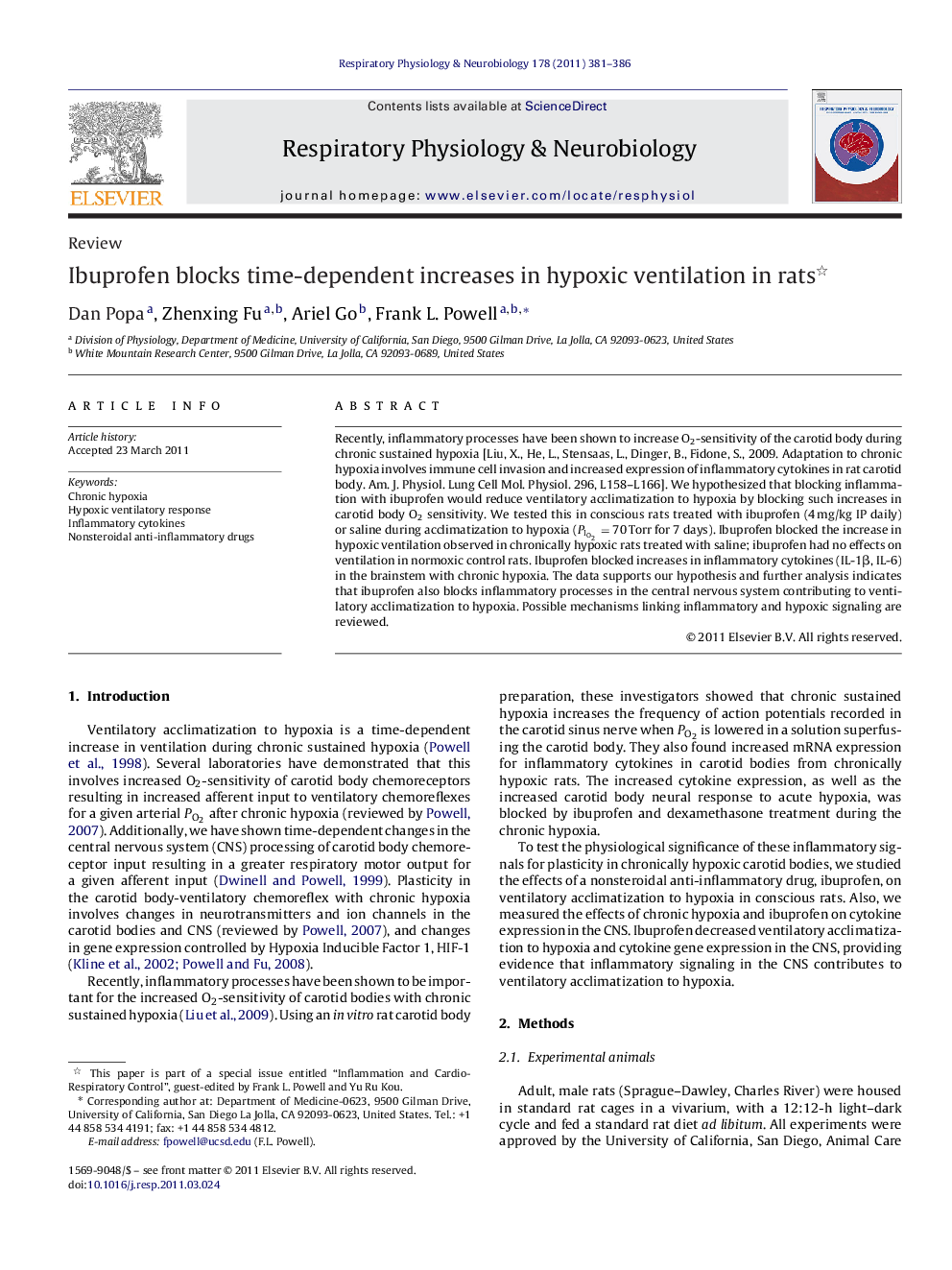| Article ID | Journal | Published Year | Pages | File Type |
|---|---|---|---|---|
| 2847429 | Respiratory Physiology & Neurobiology | 2011 | 6 Pages |
Recently, inflammatory processes have been shown to increase O2-sensitivity of the carotid body during chronic sustained hypoxia [Liu, X., He, L., Stensaas, L., Dinger, B., Fidone, S., 2009. Adaptation to chronic hypoxia involves immune cell invasion and increased expression of inflammatory cytokines in rat carotid body. Am. J. Physiol. Lung Cell Mol. Physiol. 296, L158–L166]. We hypothesized that blocking inflammation with ibuprofen would reduce ventilatory acclimatization to hypoxia by blocking such increases in carotid body O2 sensitivity. We tested this in conscious rats treated with ibuprofen (4 mg/kg IP daily) or saline during acclimatization to hypoxia (PIO2=70 TorrPIO2=70 Torr for 7 days). Ibuprofen blocked the increase in hypoxic ventilation observed in chronically hypoxic rats treated with saline; ibuprofen had no effects on ventilation in normoxic control rats. Ibuprofen blocked increases in inflammatory cytokines (IL-1β, IL-6) in the brainstem with chronic hypoxia. The data supports our hypothesis and further analysis indicates that ibuprofen also blocks inflammatory processes in the central nervous system contributing to ventilatory acclimatization to hypoxia. Possible mechanisms linking inflammatory and hypoxic signaling are reviewed.
